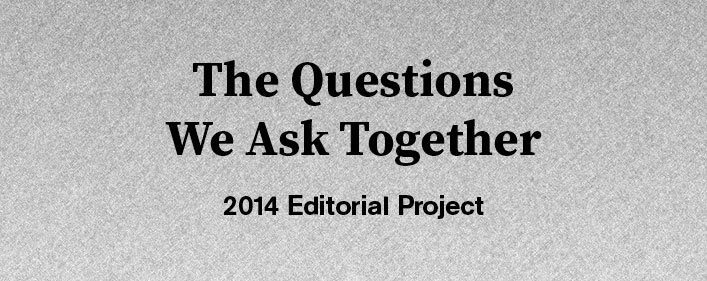When are we going to look outside of European languages for the social construction of a cultural worker?
This question sparks other questions: Where and when do we learn about cultural workers? Do European frameworks still dominate the idea of what a cultural worker is? What do we lose, and what do we miss, if we only rely on European concepts of cultural work? Do we even refer to cultural workers in our everyday work, or do we often use the term ‘artist’ or ‘organizer’ instead, and create an artificial divide between the two?
When I ask myself and others who consider themselves cultural workers, “How do you define a cultural worker?” I receive many different responses, from the most functionalist definitions (a person working in creative fields), to the radical (a person who engages in transforming cultural norms, in changing the production and distribution of meaning as part of a larger movement to challenge capitalism). It seems we are far from a consensus. Why is this?
When I think about my introduction to cultural work, I think of Paulo Freire and Augusto Boal, who theorized a pedagogy of the oppressed and a theatre of the oppressed methodology, respectively, and who were both catalyzed by military coups and dictatorship-era repression in Brazil. I think of Mimi Thi Nguyen, an Asian-American feminist and punk scholar who introduced me to the idea of writing, zine-making and other cultural production as labor, whose work challenges culturally dominant concepts of freedom and security in post-9/11 America. So many thinkers who have influenced me focus on the liberatory potential of culture: to raise questions, to clarify structures of power, to point the way to new social relations and structures.
This question also brings me to the work I have done in dialogue with artists and musicians in South Korea, Japan, and other countries in Asia. As a Korean-American, as a diasporic writer and artist, I often feel called by cultural workers abroad to co-produce work to challenge free trade agreements and US militarism, and to magnify labor rights campaigns. We are tied together by history, by economic and military interests, and by shared goals. I have also dialogued with cultural workers in the United States who are inspired by the poet Audre Lorde, by the feminist scholar bell hooks and other critical theorists, by liberation theologists from Latin America or by Quakers and Mennonites in the United States, or by hip-hop’s radical roots or the Zapatistas in Chiapas, Mexico.
This is not to deny the influence of European frameworks and concepts. I’m sure that some of us are influenced by or directed to the work of Guy Debord, Jacques Ranciere, Bertolt Brecht, Theodore Adorno, Walter Benjamin, Chantal Mouffe, and so on. I’m sure that in academic contexts, there is still a heavy reliance on European thinkers. But I’m not sure they always occupy the center in theorizing about cultural workers.
Reflecting back, I have primarily witnessed the construction of the cultural worker arising more or less organically from the context in which cultural workers operate. Perhaps this is because the cultural workers I know who identify as such are cultural organizers embedded in social movements. In such a role, these cultural workers circulate the frameworks and ideas that inspire them. And often, our search encompasses thinkers and frameworks that may have been eclipsed or buried.
I hear this question as a challenge: to be vigilant, to always be aware of how language and power structures may limit or contradict the concept of the cultural worker. This is a project of constant decolonization. Let us keep seeking out and sharing these new words and languages.
About the contributor: Sukjong Hong is an artist and writer whose visual art and community organizing work engages with war and displacement. She is currently organizing an oral history collective of artists and organizers who seek to share the experiences of Asian-Pacific American immigrant communities that are often hidden from the mainstream narrative. Most recently, she was a Create Change Fellow with the Laundromat Project, making art in everyday spaces with communities in BedStuy, and an Open City Fellow at the Asian American Writers’ Workshop, writing creative non-fiction about New York’s Asian American immigrant communities. She was also a participating artist in Still Present Pasts, a multi-media exhibit based on oral histories of the Korean War. Her training is in architecture and urban planning. sukjonghong.com
